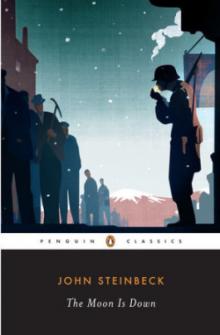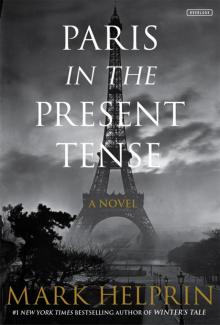The Moon Is Down


Author: John Steinbeck
Category: Literature
Published: a long time ago
Series:
View: 173
Read Online** *Originally published at the zenith of Nazi Germany's power, Steinbeck's masterful fable explores the effects of invasion on conquered and conquerors alike.* **
Occupied by enemy troops, a small, peaceable town comes to face-to-face with evil imposed from the outside--and betrayal born within the close-knit community. As he delves into the motivations and emotions of the enemy commander and the quisling traitor, Steinbeck uncovers profound, often unsettling truths about war--and about human nature.
Steinbeck's self-described "celebration of the durability of democracy" had an extraordinary impact as Allied propaganda in Nazi-occupied Europe. Despite Axis efforts to suppress it (in Fascist Italy, mere possession of a copy of the book was punishable by death), *The Moon Is Down* was secretly translated into French, Norwegian, Danish, Dutch, Swedish, German, Italian, and Russian; hundreds of thousands of copies circulated throughout Europe, making it by far the most popular piece of propaganda under occupation. Few literary works of our time have demonstrated so triumphantly the power of ideas in the face of cold steel and brute force.
Occupied by enemy troops, a small, peaceable town comes to face-to-face with evil imposed from the outside--and betrayal born within the close-knit community. As he delves into the motivations and emotions of the enemy commander and the quisling traitor, Steinbeck uncovers profound, often unsettling truths about war--and about human nature.
Steinbeck's self-described "celebration of the durability of democracy" had an extraordinary impact as Allied propaganda in Nazi-occupied Europe. Despite Axis efforts to suppress it (in Fascist Italy, mere possession of a copy of the book was punishable by death), *The Moon Is Down* was secretly translated into French, Norwegian, Danish, Dutch, Swedish, German, Italian, and Russian; hundreds of thousands of copies circulated throughout Europe, making it by far the most popular piece of propaganda under occupation. Few literary works of our time have demonstrated so triumphantly the power of ideas in the face of cold steel and brute force.
 No Time to Wave Goodbye
No Time to Wave Goodbye Worst Case
Worst Case Paris in the Present Tense
Paris in the Present Tense Crazy in Berlin
Crazy in Berlin The Most Wanted
The Most Wanted The Last Original Wife
The Last Original Wife Revenge of the Tide
Revenge of the Tide THE BENNETTS' WEDDING (The Bennett Family and the Masters Family Book 5)
THE BENNETTS' WEDDING (The Bennett Family and the Masters Family Book 5)